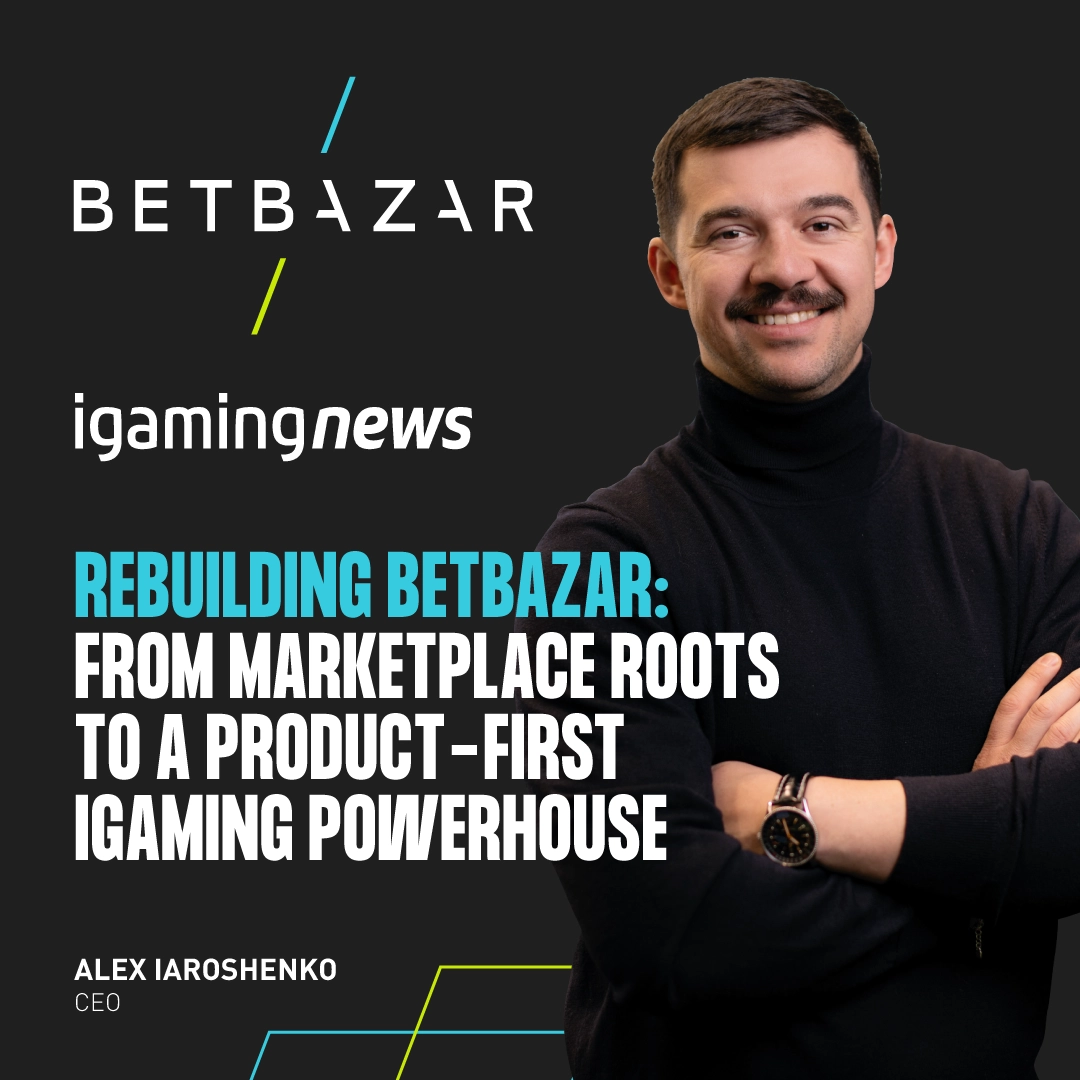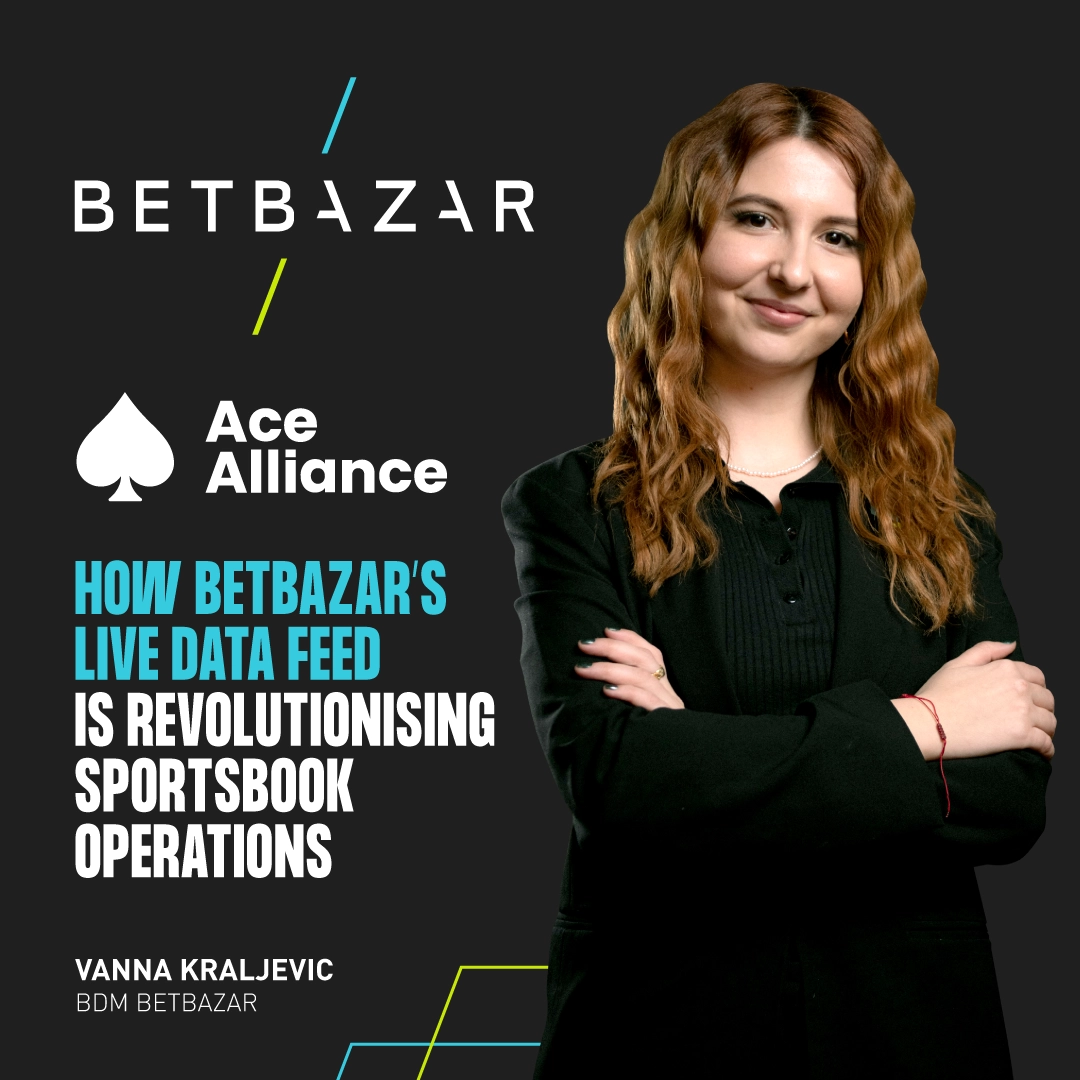
Esports US: Shaping the next generation of betting content
Gaming Americas
Although only considered a niche market just a few years ago, Esports has now firmly established itself as one of the industry’s standout performers, offering some of the industry’s highest growth opportunities for the decade ahead. We talk to Max Sevostianov, Chief Commercial Officer at Betbazar, Alex Kornilov, CEO at Betegy and Rohini Sardana, Head of Product Propositions at SIS to get the latest on Esports’ development across the US, examining the role each of the suppliers are playing in shaping the vertical’s exciting development.
Talk us through the US Esports betting scene – how does it differ to what we’re seeing in Europe and LatAm?
Max Sevostianov, Betbazar: What sets the US apart is how the audience engages with Esports. The country has a distinct heritage of video gaming, being home to some of the most influential developers coming, such as Riot Games and Blizzard. That being said, we see a great deal of competitive Esports teams in South Korea and China. The US doesn’t have teams at that level, so while engagement in the vertical is steadily growing, we are yet to see this reflected in a competitive way.
This will only be a matter of time though. The US has all the right cultural ingredients and infrastructure for a thriving and competitive Esports landscape. Looking at demographics, it’s also a
sports betting market that’s still very much in the development phase, so it will no doubt take time for it to truly become part of the sports culture there. What is very promising for us, however, is the way that sports betting and Esports are evolving at tandem in the US – which is creating a real synergy between both verticals.
Alex Kornilov, Betegy: As a vertical, Esports are shaped by the global online community. People play CS:GO, DOTA2, Rocket League, FIFA etc, all over the world – and it’s the same everywhere. This is part of what makes Esports so successful – it unifies different regions and can be enjoyed as a product with little to no regional changes necessary.
In how the US Esports betting scene differs – its rollout has been more cautious than in Europe and LatAm, due to regulatory issues, especially given the age of the demographics involved in Esports stateside. As a consequence, most legislators will naturally approach it conservatively.
How much has Esports betting grown over the last 18 months and to what extent has it proven itself as a pandemic-proof alternative for US bettors?
Rohini Sardana, SIS: There has been a considerable appetite for Esports content across the globe in last two years, and the same certainly applies to the US market. The suspension of live sports last year undoubtedly helped to bring Esports to the attention of a wider betting audience, and its continued popularity would not be possible without a strong product in the first place. It’s the immersive experience that Esports betting content offers which is what ultimately keeps bettors and fans coming back for more.
Esports has now embedded itself within the overall sportsbook offering, which wasn’t the case pre-2018, with operators unsure of whether bettors wanted to take a chance on it. That view has now relatively gone, and operators know that a younger, new demographic want to engage with Esports betting content.
Our own Esports betting product, SIS Competitive Gaming, is testament to this. It has increased output of events from an eight-hour live stream to multiple streams running 24/7/365 due to strong customer demand. We are currently offering four concurrent live 24/7 streams of Esports betting content for online and retail customers and up to 150,000 fast-paced live events a year. It’s safe to say that Esports betting has established itself within the wider sportsbook ecosystem and that demand continues to grow.
Max Sevostianov, Betbazar: The vertical has proven itself as a pandemic-proof alternative, as it is a reliable entertainment market as well as a betting market. The numbers make that very clear – and there were 27 million monthly Esports viewers during 2020, which is an 11.5 increase compared to the previous year.
I expect this will continue across DoTA 2 and LoL tournaments, as the prizes for these competitions are also growing exponentially, which has greatly increased the popularity of the Esports brand and ecosystem. Looking at the other disciplines available, US Esports didn’t see the same level of growth as Europe did with Efootball, although of course the demand for ‘soccer’ mixed with the excitement of the Euros over the summer was an unstoppable combination that would have been hard to compete with.
Looking at the more familiar sports to US Esports fans such as ice hockey and basketball, Esports’ popularity in the US hasn’t waned significantly as live sport has returned. This growth has been driven principally by millennials and Gen-Z, and it shows no signs of abating. Key now is for developers is to focus on supplying first-class content, as well as an unbeatable entertainment experience to go with it.
Alex Kornilov, Betegy: We work with companies that deliver betting content to operators, and the demand when the pandemic started was incredible. Esports became a must-have in portfolios, and was something that probably even exceeded most expectations – even for the esports enthusiasts in the industry.
While it has levelled off since then with the return of sporting events, it has significantly increased in standing, ensuring it has a place in offerings regardless of the sporting landscape.
For US bettors, it was the same. Operators needed to get content into their sportsbooks, and Esports was the solution. With a huge fanbase already, the US is a strong market for the vertical, and one that will continue to be adopted at a rapid pace, well as fast as regulation permits anyway!
What Esports betting disciplines are proving most popular? How much of a split are seeing across the likes of Counter Strike vs. sports?
Max Sevostianov, Betbazar: The Esports disciplines reflect those that are popular in real sports in the country, with the NBA and NHL being most popular. This means it is vital to have Esports in the same section of the sportsbooks as the real sport – as they are very much synergistic. It’s easy to see why, players who enjoy hockey are much more likely to switch over to Ehockey than they are to another sport. The trick, of course is making its availability abundantly clear to the player.
Taking a wider look at the market – the potential for growth in this space is huge. Sports fans logically like to bet on sports, and almost all are versed with the world of video game-based sports, so this represents a fantastic cross-sell opportunity between the two. From there, players can also be converted over to Esports battles and the like. Streamers are also key to introducing sports fans to games like DOTA2 and Counter Strike. Given that large parts of the US are still only being introduced to online sportsbook, a more interactive approach may be necessary to engage them in this kind of betting, which Esports is perfectly adapted for.
Alex Kornilov, Betegy: We can see how popular certain titles are when working with clients, but it’s quite unanimous that CS:GO and DOTA2 are the most popular by some margin.
Then you get a slightly more variable split. Some players love PUBG, some love sporting games like FIFA, NFL, NBA, while we’re increasingly seeing more popularity in racing simulations, such as your F1 or Forza titles.
This split is expected, as like many things, players have different preferences. Some may love sports games, others driving, others combat. The variety is what makes Esports so exciting – and with the right segmentation and personalisation tools as an operator, you can be onto a real winner.
Rohini Sardana, SIS: While there are regional differences across different regions around the world, in terms of the most popular Esports titles, we have not witnessed a major shift in popularity away from the traditional top three Esports games: League of Legends, DOTA2, and Counter-Strike: Global Offensive. This is why at SIS we have plans to launch our next betting proposition with Counter-Strike, which already has proven betting appeal.
That said, the appetite for sports themed titles is also clearly there, which is why SIS Competitive Gaming also features Ebasketball and Esoccer titles. To ensure our Competitive Gaming portfolio evolves and remains a truly global proposition, we are aware of the importance of offering content that is popular across the world and in a number of different territories.
For example, given basketball’s popularity across the Americas, the UK and Asia, we have been able to provide a premium Ebasketball betting product that appeals to a global audience. With matches taking place all day in four five-minute quarters, our Ebasketball product has proven to be a huge hit with operators and bettors globally.
How much is the split segmented by demographics? In your eyes, which holds the highest growth potential?
Max Sevostianov, Betbazar: This audience tends to be a young one – predominately ranging from 18-30 years old. What we need to talk about is converting the audience that bet on real sports to betting on Esports, and this is where marketing is hugely important. For many in the age demographic above millennials, the game mechanics of the like of DOTA2 or League of Legends are simply not accessible – but they can be.
The first step is the migration from betting on real sport to betting on its equivalent Esport. After that, really engaging content is the most important factor. The US is a world of its own when it comes to fan engagement and customers there will react to high quality. But in the meantime, betting operators hoping to attract an Esports audience need to be willing to invest in marketing while it gets into its stride. This demographic could then hold endless growth potential.
Alex Kornilov, Betegy: The demographic makeup of bettors is very diverse across multiple segments, but one thing in that really stands out is the majority of bettors are under 40. These are players that would have grown up with video games, who understand the rules of many of them, thus need minimal learning time when understanding betting markets.
It is essentially just about familiarity. It’s much harder for someone with no experience of games to learn the intricacies and rules, while someone bought up in the era when they’ve been commonplace will be more amenable. Of course, that needs to be adjusted to their expectations for entertainment – content needs to be fast, short and instantly enjoyable, and of course – pay out quickly.
Rohini Sardana, SIS: With SIS Competitive Gaming being an Esports betting product that appeals to both sports bettors and Esports bettors, we see the growth potential across both verticals. The core elements of the product ultimately remain the same, regardless of whether you are offering Esoccer matches or first-person shooter events. The availability of quality live streams and a variety of markets, all underpinned by strong integrity, are the key fundamentals that are required for every single Esports betting opportunity, which is what we’re able to offer. Moving forwards, we are planning additional titles across both verticals to help us expand our content offering, which will further help operators drive profitable revenues, be it through sports titles or first-person shooters.
Esports betting has been touted as a key cross-sell for the next generation, but is it more of a case of converting sports fans to Esports betting, or alternatively using Esports betting as an acquisition tool for introducing gamers to casino?
Max Sevostianov, Betbazar: It’s all about marketing. We have to look at it not only from the viewpoint of the betting markets but also from that of brand captial. Riot Games has been very clever here, releasing a Netflix series based on League of Legends, called Arcane. This has been extremely well received and, without a doubt, it will significantly help boost the number of people playing the game across several demographics.
Sponsorship of teams and players and events is also necessary. We’re seeing this happening now, with key operators investing in certain teams, and in turn creating an ecosystem within the region that can further build on the existing esports culture. In short, Esports will have maximum cross-sell opportunity when it starts selling itself and marketing itself more like sports. As for casino, we are already seeing some mechanics like lootboxes in gaming, which reflects the RNG element, so this is another route to connect the two.
Alex Kornilov, Betegy: It’s more likely that Esports betting is key for the next generation, regardless of cross-sell. Operators who market this properly will have this as one of the most exciting products in their arsenal.
Rather than looking at converting Esports to casino though, operators would be better served to introduce new disciplines within the vertical for players to try for the first time. This has demonstrably worked already, and converting players from CS:GO into more sports, such as FIFA, or DOTA2 holds plenty of potential. Much like in sports betting, how players learn to be more comfortable betting on other sports, Esports has such scope for growth inside its own vertical, and that’s what makes it so exciting.
Rohini Sardana, SIS: SIS Competitive Gaming was the first Esports betting product to be built specifically for sportsbooks and was designed initially to appeal to existing sports and casual bettors, in a format that is familiar to them, featuring fast-paced action that allows multiple betting opportunities.
As well as providing frequent live head-to-head events around the clock, with live streams at ultra-low latency, operators can receive the product as an end-to-end solution with streaming, data, on-screen bet prompting graphics, betting commentary and pre-match and in-play markets, helping to create that familiar and compelling betting experience for current sports bettors. This ease of access and familiarity has resonated extremely well with bettors, with frequent and quality betting opportunities driving increased turnover for operators, which is testament to the fact that SIS Competitive Gaming was shaped with operators and bettors in mind.
Last but not least, how do you see the Esports betting scene developing in the US by the end of 2022? What key tournaments and events are in the calendar next year for gamers?
Max Sevostianov, Betbazar: Next year is going to be huge for US Esports. One of the biggest events, Riot Games’ League of Legends World Championship, will take place across New York, Toronto, Mexico City and San Francisco. This will be the first-ever multi-country edition of the event. It’s also the first time the event will take place in North America since 2016.
I predict that the revenue of Esports will increase as the US becomes more familiar with sports betting, and events like this will continue to boost the vertical’s popularity across the country. This all indicates that the US is expected to hit above half a billion dollars during 2022, close to 10% of the vertical’s worth globally, which is of course huge.
Rohini Sardana, SIS: We’re expecting considerable appetite for Esports across the globe to continue and to see further growth in the US through 2022 as more states regulate Esports. We’ve never had more opportunities than we do now in the US, with the market set to continue to open up next year, and so that will only help fuel Esports’ rise. No doubt, the US Esports betting market will prove to be a key target area next year for most international operators, and at SIS we will be looking to build upon Competitive Gaming’s presence in the US as we see huge potential in the region.
After experiencing great success across Europe and Latin America with our Competitive Gaming product, targeting the US is the natural next step for us. We recently launched our US subsidiary, SIS Content Services Inc., led by Michele Fischer, showcasing our commitment to the US and the opportunities available to digital and retail sportsbook operators, and this will aid us greatly as we look to extend our presence in the region.
Betbazar is a global entertainment ecosystem that connects providers with their respective operators and platforms. We scout and validate products for bookmakers, and work as an external sales office for suppliers. Our mission is to help each sportsbook to find its perfect product.
About the Role
We are looking for a charismatic Business Development Manager with deep experience in the sports or esports industry and strong communication skills. The ideal candidate is proactive and thrives in a fast-paced, data-driven environment.
This is a unique opportunity to join a stable and forward-thinking company where you’ll have access to powerful tools, top industry contacts, and a clear path for growth.
Key Responsibilities
- Identify, approach, and close business deals.
- Leverage your network and CRM systems to drive sales and build long-term client relationships.
- Communicate with decision-makers at top-tier companies.
- Lead negotiations.
- Collaborate closely with internal teams and contribute to strategic growth.
- Maintain accountability for pipeline management and performance tracking.
- Stay up-to-date with industry trends and use data to inform your strategy.
Must-Have Qualifications
- 3+ years of proven success in sports or esports business development or sales.
- Fluent in English (Spanish and/or Portuguese are strong advantages).
- Experience using CRM systems and working with large data sets.
- Strong negotiation and networking skills.
- Contacts within top companies in the industry.
- Excellent communication, time management, and problem-solving skills.
- Analytical mindset with the ability to make data-driven decisions.
- Resilience under pressure and a strong team spirit.
Preferred Qualifications
- Based in Europe
- Experience in a single company for more than 1.5 years
- Motivated by success
- Confident personality with a proactive attitude
What We Offer
- Stable income with the potential for high earnings through bonuses and performance-based rewards.
- Access to powerful CRM platforms, professional tools, and industry databases.
- Subscriptions, resources, and the opportunity to attend global conferences and training.
- Company-sponsored participation in top industry conferences — travel, tickets, and arrangements are handled by us.
- Work with a data-driven company that values innovation and growth.
- Supportive, high-performing team culture with a strong focus on professional development.
Work Conditions
- Full-time
- Remote or hybrid format available
- Contract-based engagement
- Performance-based bonuses
Ready to Join a Winning Team?
If you’re looking for a career-defining opportunity in a thriving sector, with all the tools, contacts, and support you need to succeed — apply now and let’s talk.
- Minimal 1 year experience as B2B Sales Manager, Business Development Manager or similar
- Proven experience in leads generation, negotiations and new customer onboarding
- Good understanding of gaming products, such as sportsbook, slots and live casino
- Fluent written and oral English
Will be a plus:
- Personal networking background
- Other gaming verticals experience
- Understanding of KYC instruments and marketing tools (including affiliates)
- Additional languages (DE, ES, CN, GR, PL)
We offer:
- Competitive salary and bonus system
- Self-development possibilities (public speaking, business writing, English speaking club)
- Cosy and productive environment in downtown Kyiv
- Flexible office hours
- Business trips for gaming-related exhibitions and conferences





